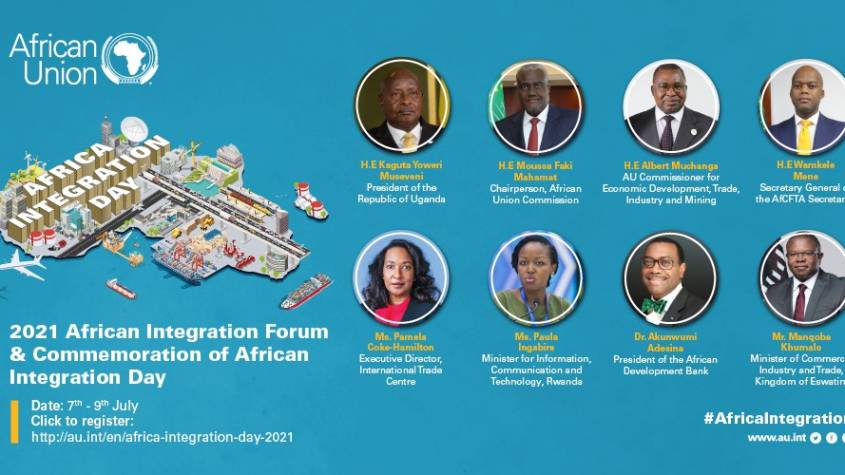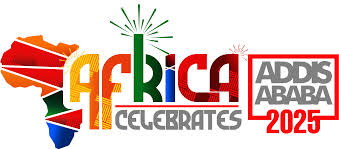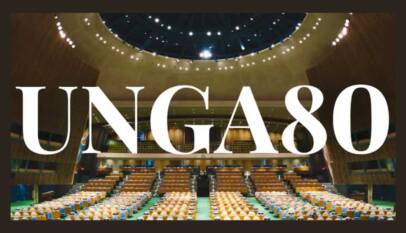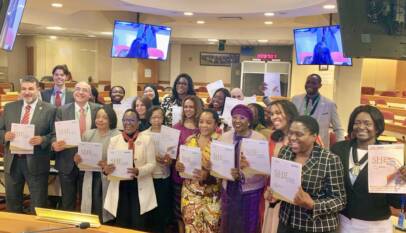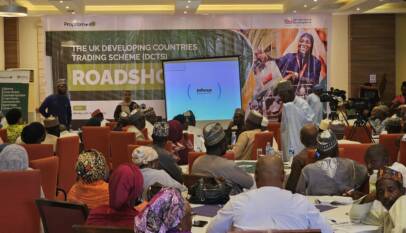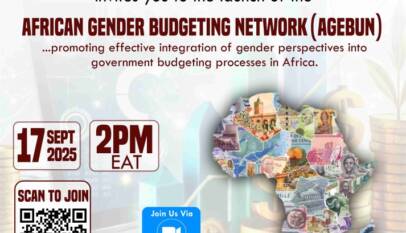2021 African Integration Forum: Continental integration as enabler of Africa’s post-COVID-19 recovery
Stakeholders from the African Union, Member States, United Nations, private sector as well as civil society are currently participating in the three-day virtual commemoration of the 2021 African Integration Forum
By Adam Alqali
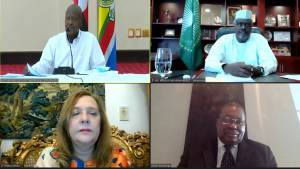
It would be recalled that July 7 was declared as African Integration Day by the Assembly of Heads of State and Government of the African Union (AU Assembly) at its 12th Extraordinary Session, focused on the African Continental Free Trade Area (AFCFTA), held July 2019, in Niamey, Niger Republic.
Thus, the inaugural African Integration Day was hosted by the AU Commission in collaboration with the African Union Development Agency (AUDA-NEPAD), on July 7, 2020, under the theme: “Re-booting Africa’s Industrialisation to Generate National Wealth and Create Jobs along AfCFTA Implementation.” Subsequently, the 2nd commemoration of the African Integration Day themed: “The Role of Continental Integration in Accelerating African Economic Recovery from the COVID-19 Pandemic” held Wednesday (July 7).
This year’s celebration coincides with the inaugural African Integration Forum holding from 7 to 9 of July, 2021. The AU’s Specialized Technical Committee (STC) on Finance, Monetary Affairs, Economic Planning and Integration had during its March 2019 meeting in Yaoundé, Cameroon requested the AU Commission to organize the African Integration Forum, every year.
The maiden Forum is being hosted by the AU Commission in collaboration with the various Regional Economic Commissions (RECs); the AfCFTA Secretariat, AUDA-NEPAD; the Economic Commission for Africa (ECA); as well as the African Capacity Building Foundation (ACBF). Other partners are the African Development Bank (AfDB); African Export and Import Bank (Afreximbank); the African Business Council (AfBC); the Pan-African Chamber of Commerce and Industry (PACCI); AfroChampions Initiative; African Electronic Trade (AeTrade) Group; as well as the Trade Law Centre (TRALAC).
Amongst others, the event is meant to serve as a platform for main continental players, namely AU, RECs, UN agencies, private sector, and civil society, to openly discuss the challenges facing regional and continental integration, with a view to providing practical solutions to overcome them; foster citizens’ participation with a view of instilling an unwavering commitment to regional integration among Africans; as well as create a new positive mind-set on the importance of integration as a tool to accelerate Africa’s economic recovery from the pandemic.
Speakers at the opening ceremony of the commemorative event included H.E Yoweri Museveni, President of Uganda and Champion of Regional Integration in Africa, whose keynote address marked the official opening of Africa Integration Day/Forum; H.E Moussa Faki Mahamat, Chairperson of the AU Commission; H.E Albert Muchanga, Commissioner for Economic Development, Trade, Industry and Mining at the AU Commission; as well as Dr Amany Asfour, Interim President of the African Business Council (AfBC).
In his keynote, President Museveni said he had been actively involved in promoting African integration for now close to six decades, dating back to his days as student leader in the 1960s arguing that integration was the only pathway to prosperity for Africa’s 1.4 billion people. He however noted, until Africa addressed the key question of political and economic organization, it would not be able to effectively harness the benefits of its enormous natural resources.
“How can the 1.4 billion African people be prosperous? You can only be prosperous through production of goods and services. If you provide a good or service but you don’t have enough buyers there will not be economic growth. This is the idea behind integration, integration is meant to overcome poverty and underdevelopment through [mass] production and access to markets for goods and services,” President Museveni stated.
“Low vaccination, consequence of Africa’s dependence on outside world” – Mahamat
In his remarks, Chairperson of the AU Commission Faki Mahamat described the commemoration of African Integration Day/Forum as a platform for high-level political dialogue between different stakeholders working on Africa’s integration and development.
Mahamat however said the second commemoration of the Day was coming at a period of severe socioeconomic challenges in Africa, brought about by the COVID-19 pandemic. “Although Africa is spared catastrophic deaths from the pandemic, it is grappling with the socioeconomic fallouts of the virus including estimated loss in GDP of between USD145 to USD190 billion. The pandemic has also resulted in reduced economic growth from the projected 7% to 3.4% in 2021.”
Thus, Mahamat said the AU viewed continental integration not only as accelerator of economic growth but also as incubator of economic independence, noting that the occasion of African Integration Day provides an opportunity to reposition Africa’s place “on the international scene by predetermining its role not only as supplier of raw materials for the development of other regions of the world but also as a continent which is a producer and exporter of manufactured goods.”
To achieve this laudable objective, the AU Commission chief called for the “restructuring of our approach” through the transformation of Africa’s productive sector by rededicating efforts towards ensuring flagship programmes of Agenda 2063 were implemented across areas where Africa enjoys strong potentials for growth, namely infrastructure, energy and services.
“Covid-19 is undermining the capacities of African societies. In this new era, the production of medicine is crucial in order to fight diseases and pandemics; the result of dependency on the outside world is that less than 2% of Africans have been vaccinated against Covid-19, so far. Our major concern now is health independence which is at the heart of economic independence,” said Mahamat.
“40% of public procurement should be reserved for African goods, services” – AfBC President
In her remarks, Dr Amany Asfour, Interim President of the African Business Council (AfBC), said as the premier voice of Africa’s private sector – manufacturers, chambers of commerce and industry, SMEs and large corporates – the founding vision of AfBC was the realization of a competitive, innovative, borderless Africa for free trade, investment and industrialization.
“Our vision is to be the advisory arm of Africa’s private sector, focused on strengthening economic, commercial, business and investment ties among Africa’s business community, while ensuring regular and inclusive dialogue with the AU. Less than 2% of Africa’s population has been vaccinated when other regions have achieved up to 70% vaccination rates; it has become very, very necessary to invest in our pharmaceutical industry. It is now mandatory to invest in our private sector to enable it produce our vaccine,” urged Dr Asfour.
The AfBC president therefore called for closer working relationship between African governments and the private sector, in the spirit of Public Private Partnership (PPP), noting that for the continent to boost intra-African trade, governments must come up with strong legal and policy frameworks offering preferential treatment to ‘Made in Africa’ goods in public procurement.
“We are appealing for enabling policies to allow for certain percentage of government procurement to be reserved for African products. If we want to boost intra-African trade (which is currently at around 16% when other regions are at over 60%) we need to guarantee a preferential treatment for our products in procurement processes. At least, 40% of all government procurement should be reserved for Africa’s private sector,” she admonished.
In addition, Asfour described Non-Tariff Barriers (NTBs) such as the poor state of infrastructure across Africa as a major inhibition to continental integration and the success of the AfCFTA, expressing AfBC’s readiness to work with governments to address major NTBs such as infrastructure.
“We are happy to note that the AfCFTA Secretariat has already developed and is implementing an online mechanism for the reporting, monitoring and elimination of NTBs. We encourage this to be accompanied with strengthening of our national, regional and continental quality assurance institutions to facilitate the harmonization of standards and technical regulations. We further encourage the AfCFTA Secretariat to ensure reported NTBs are resolved expeditiously,” she concluded.
“Open skies will ease movement of passengers, cargo” – EAC Secretary General
While speaking on the Integration Day’s inaugural panel discussion on the role of regional integration in Africa’s post-COVID recovery, Secretary General of the East African Community (EAC) Peter Mathuki blamed Africa’s current poor fiscal outlook on decline in export revenues occasioned by COVID-19 and the resultant huge public health spending by governments in responding to the pandemic.
“The situation is expected to worsen in the coming years as countries strive to recover from the pandemic, public debt and inflation are expected to rise. More than ever before, regional integration is required in the post-COVID-19 era in Africa. There is need for public-private partnership and dialogue so as to collectively respond to the pandemic. Our economies are desirous of being injected with stimulus,” he urged.
Mathuki therefore said it was necessary for African governments to come up with policy frameworks that would foster a conducive atmosphere of doing business for the private sector which, he said, would allow the private sector the opportunity to play an active role in helping the economy got back on track. He noted, even as the pandemic had disrupted supply chains, the commencement of trading under the AfCFTA offers African countries opportunity for economic growth.
“We need to start looking inward to harness available opportunities in areas we have competitive advantage like agriculture and services but also domestic tourism; which is only possible if we have open skies that allow for easier movement of people and cargo across the continent. African countries need to simplify and harmonize non-tariff measures amongst themselves and also conduct a lot of bilateral talks with countries in other parts of the world so as to attract investors to take advantage of the AfCFTA,” Mathuki emphasized.
“No integration without free movement of people” – IOM regional director
In his remarks, the Southern Africa Regional Director at the International Organisation for Migration (IOM), Charles Kwenin, said it was evident that the economic benefits of regional integration would not be realized without the free movement of people, goods and services, wondering why even as the AfCFTA Agreement had already been signed and ratified by majority of AU states, the AU Free Movement Protocol had not enjoyed the same attention from member states.
“Human capital or rather people need to move for us to optimize the utilization of skills available in the labour market. The movement of goods and services is facilitated by the people. So, one wonders why the AfCFTA has been ratified by most AU member states but not the AU Free Movement Protocol, considering the fact that it is people that move goods and services,” lamented Kwenin.
The IOM scribe however applauded the AU for the enactment of policies such as the African Common Position on Migration and Development; Migration Policy Framework for Africa (MPFA); as well as the 2015 AU Assembly Declaration on Migration, in which Heads of State and Government of the AU emphatically called for the speeding up of the implementation of continent-wide visa free regimes including issuance of visas at ports of entry for Africans and based on the principle of reciprocity, as well as the operationalization of the African Passport.
“Yet, the Free Movement Protocol has to be operationalized for people to move freely without any restrictions. The failure to operationalize the Protocol is due to security and more recently, health considerations; nonetheless, people continue to migrate because migration is inevitable – it’s unstoppable! What we should realize is that the more restrictive measures we put in place, the more migrants device innovative and creative ways of circumventing them by subsidizing the work of smugglers and traffickers, bringing with them the threats we are afraid of,” said Kwenin.
“First, we need to leverage migration as a catalyst to underpin the implementation of the AfCFTA. We need to integrate migration in the continent’s post-pandemic socioeconomic recovery plans. Second, we need to develop a cohesive and coordinated border management approach that integrates health security. Migration is not a problem to be solved; it is a human reality that needs to be managed. If properly managed, it is beneficial to countries of origin, transit and destination,” he concluded.

